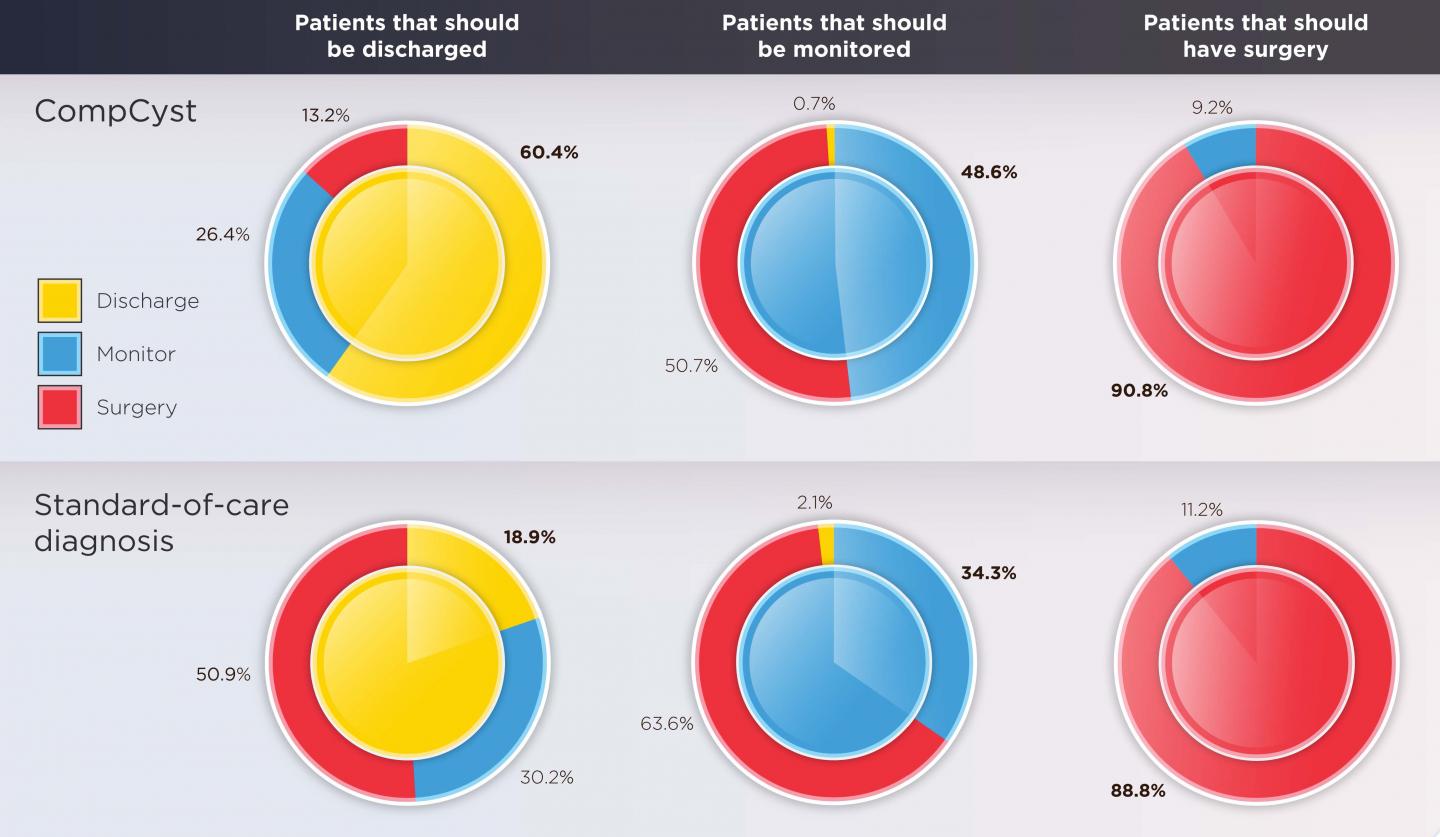
Credit: S. Springer et al., Science Translational Medicine (2019)
Researchers have created a comprehensive test based on machine learning algorithms to better guide the management of patients with pancreatic cysts – a potential precursor of pancreatic cancer. The new assay, called CompCyst, outperformed the current gold standard-of-care in an international, multicenter study of 875 patients. Crucially, the test would have avoided surgery in 60% of patients who underwent unnecessary surgical removal, suggesting its use could lead to fewer unneeded surgeries and lower health and economic costs. Pancreatic cysts are fluid-filled lesions in the pancreas that are found in up to 8% of all people over the age of 70. Although most cysts are benign, some pancreatic cysts that produce mucin can transform into an aggressive form of pancreatic cancer. What’s more, it is difficult to distinguish precancerous cysts from benign ones, so noncancerous cysts are often misclassified and unnecessarily removed with pancreatic surgery. To overcome this dilemma, Simeon Springer and colleagues enrolled 875 patients with pancreatic cysts and collected information of the mutations, proteins, and other markers linked to their either benign or mucin-producing cysts. They used deep learning techniques to train CompCyst to read these markers and classify patients into those that should be monitored, not monitored, or receive surgery. After training the test protocol with 436 of the original patients, the researchers found the test largely outperformed standard-of-care pathology when evaluated in 426 other patients: it correctly identified 60.4% of patients who should have been discharged (versus 18.9% using standard-of-care diagnosis), 48.6% of patients that should have been monitored (versus 34.3%), and 90.8% of patients in need of surgery (versus 88.8%). Future work will be necessary to prospectively validate the markers used in the test, but Springer et al. say their platform has strong potential to be used in the clinic as a complement to existing approaches.
###
Media Contact
Science Press Package Team
[email protected]
Related Journal Article
http://dx.




